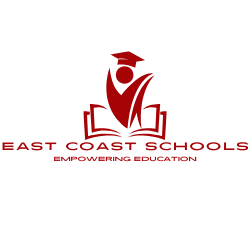In today’s fast-evolving world, traditional academic paths don’t always align with students’ career goals—or the demands of a rapidly changing workforce. That’s why more East Coast colleges are now embracing Design Your Own Major (DYOM) programs, allowing students to build interdisciplinary degrees that reflect their passions, strengths, and future ambitions.
What Is a “Design Your Own Major” Program?
A DYOM program lets students work closely with faculty advisors to create a custom curriculum that spans multiple departments. Instead of choosing a predefined major like Political Science or Economics, a student might craft a program like:
- Tech & Social Justice (CS + Sociology + Ethics)
- Global Health Policy (Biology + Public Health + Government)
- Creative Entrepreneurship (Studio Art + Business + Marketing)
These programs allow for deep exploration and innovation—perfect for students whose interests don’t fit neatly into one academic box.
Why East Coast Colleges Are Leading the Movement
Top institutions on the East Coast are especially well-positioned to offer this flexibility, thanks to their robust liberal arts foundations and interdisciplinary culture. Schools like Amherst, NYU Gallatin, Brown, Wesleyan, and Hampshire College have pioneered these programs for years—but now more colleges, including mid-sized and regional schools, are joining the trend.
Here’s why:
- Students Want Personalization
Today’s students crave academic autonomy. They want the freedom to explore unconventional pathways that prepare them for niche careers in fields like climate innovation, AI ethics, or nonprofit leadership. - Interdisciplinary Skills Are in Demand
Employers increasingly value hybrid skill sets—think tech + communication, science + policy, or art + business. DYOM programs produce graduates who can think critically across domains. - It Helps Smaller Colleges Stay Competitive
For liberal arts schools facing enrollment pressure, offering customizable majors is a way to attract creative, motivated students looking for something unique. - Prepares Students for Emerging Fields
DYOM programs are ideal for students pursuing careers in emerging industries that don’t yet have clear academic tracks—like digital sustainability or augmented reality education.
🛠 How It Works: The Process of Designing a Major
While policies vary by school, most DYOM programs follow a similar process:
- Proposal Creation: Students submit a detailed plan outlining their intended course of study, learning objectives, and rationale.
- Faculty Mentorship: Students work closely with two or more faculty advisors across different departments.
- Approval Committee: A committee evaluates the proposal to ensure it meets academic rigor and coherence.
- Capstone or Final Project: Most programs culminate in a capstone, thesis, or applied project.
Student Spotlight: A Real-World Example
At Brown University, one student combined Environmental Science, Urban Studies, and Economics to create a major in “Sustainable Urban Design.” After graduation, she joined a green infrastructure startup and now consults on climate-resilient city planning.
Final Thoughts: Freedom Meets Structure
Design Your Own Major programs offer the best of both worlds
